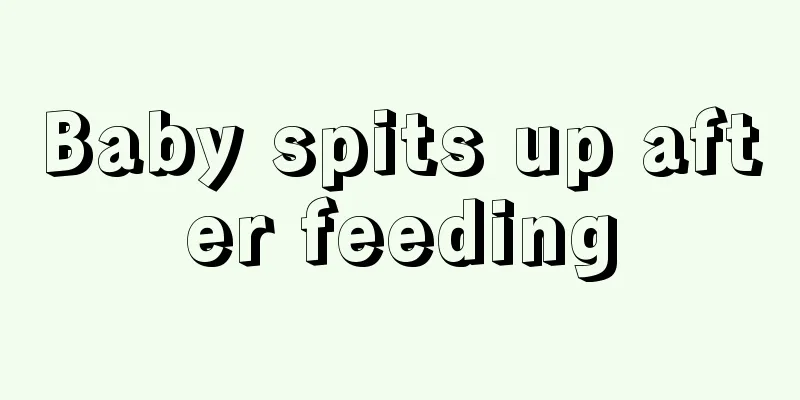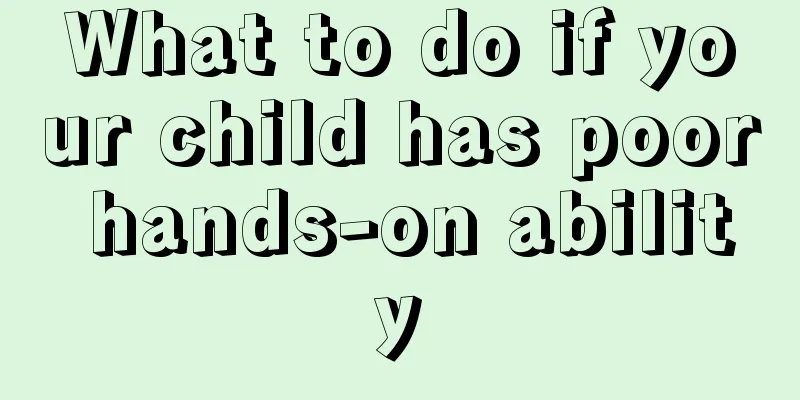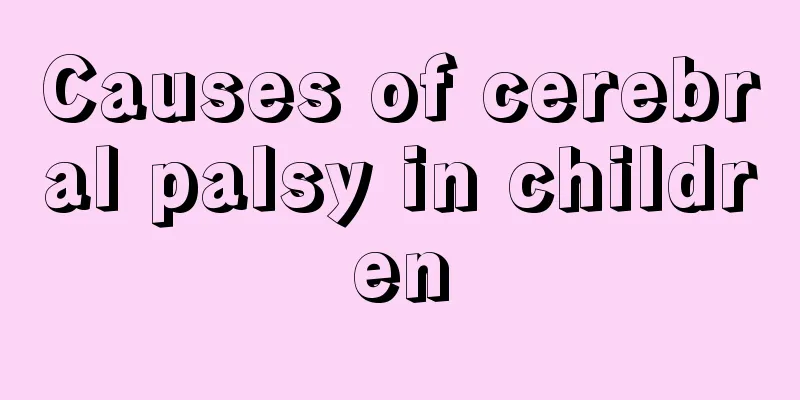Baby spits up after feeding

|
There are many behaviors of babies in daily life that parents need to pay attention to. If parents find that their baby spit up milk after feeding, they must find out the reason. Otherwise, the child's body will not get nutritional supplements, which is not good for development. Generally speaking, there are two reasons why babies spit up after feeding. One is physiological reasons, and the other is illness. So parents should find out the reasons in time. Breast milk is the only way for babies to get nutrition, so if the baby spit up milk after feeding, the body will not get enough nutrition and the development will be hindered to a certain extent. It is very common for babies to spit up milk after feeding, so parents should not be too nervous. Spitting up is a common phenomenon in infants and can be caused by two reasons: One is a symptom of systemic or gastrointestinal disease; Second, the anatomical and physiological characteristics of the infant's gastrointestinal tract make vomiting prone to occur. Generally speaking, vomiting caused by the second reason is more common. The milk taken in through the mouth first passes through a tube called the esophagus and then enters the stomach. The stomach has two doors, one is connected to the esophagus called the cardia, which is the entrance of the stomach, and the other is connected to the intestine called the pylorus, which is the exit of the stomach. The tension of the esophageal muscles in infants and young children is low, which can easily cause expansion. At the same time, the peristalsis is relatively slow, so food can easily accumulate. The cardia is relatively loose and not tightly closed, so it is easily opened by food. When there is a little more food in the stomach, it can break open the cardia and flow back into the esophagus. The pylorus is tightly closed and can be easily stimulated by food to cause spasm, which makes the exit resistance greater, and food passes slowly or with difficulty. Food then flows back from the pylorus to the cardia and breaks out. In addition, the baby's stomach does not hang down like that of older children and adults, but is in a horizontal position. This can reduce the capacity of the stomach, store less food, and also make it easier for it to return to the cardia. Due to the existence of the above factors, even under normal circumstances, if you eat too much and lie down immediately after feeding, the milk can easily rush open the cardia and return to the mouth through the esophagus, causing vomiting. If a child spits up milk occasionally and is in good spirits, he or she may not be sick. If the child vomits several times in a row and vomits every time during feeding, you should pay attention to whether the child has a fever, the condition of his bowel movements, any changes in his spirit, etc. There may be problems with the gastrointestinal tract itself, or there may be lesions in other systems. You should take your child to the hospital for examination. Spitting up is usually caused by the baby taking in air while feeding. After the air enters the stomach, because the gas is lighter than the liquid and is located at the top, it can easily break through the cardia and come out, and it will also bring out some milk, which will cause milk regurgitation. Therefore, when feeding, let the child's mouth cover the entire nipple, leaving no gaps to prevent air from entering. When feeding with a bottle, the milk should completely fill the nipple. Don't be afraid that the milk will be too strong and only reach half of the nipple, as this will make it easy for the baby to inhale air. After feeding, it is best to let the child lie on the adult's shoulder and pat the child's back with your hand to allow the inhaled air to escape. After feeding, be gentle and use less movement when picking up and putting your baby down. If you shake the baby too vigorously, it will easily cause milk to regurgitate or spit up. The amount of milk that comes out during belching is generally small and will not have much impact on the child's growth and development. It will get better naturally as the baby gets older. The above introduces some knowledge about babies spitting up milk after feeding. I hope that after reading it, you will have a better understanding of this knowledge. Parents need to understand their baby's behavioral habits and know when their child is unwell so that they can detect their child's discomfort in time and make timely adjustments. |
<<: Severe spitting up of baby
>>: What should teenagers eat to grow taller
Recommend
Treatment for spitting up in babies
Infant spitting up is undoubtedly a major focus o...
Why do six-month-old babies sweat so much?
Several of my neighbors’ babies are already 6 mon...
What to do if your 2-month-old baby sneezes
My sister's baby is 2 months old and has been...
Children often complain of stomachache
Many children often complain of stomachaches. Thi...
How to protect children's teeth
It is the common wish of every child that they ca...
What to do if your newborn moves his hands and feet while sleeping
When a baby is just born, his body is easily affe...
How to diagnose intestinal infarction in children
Pediatric intestinal infarction is a relatively c...
Recipes for two and a half year old babies
Children's intestines are not fully developed...
How many shots of rotavirus vaccine are needed?
Rotavirus often infects children under three year...
What should I do if my baby has a poor appetite in summer?
In the summer, it is very hot and many people fee...
Child's nail peeling
In life, many parents have found that their baby&...
Is it good to squeeze the nipple for babies?
There are many traditional considerations in the ...
What happens if my baby vomits at night?
Today's food problem is not just a problem fo...
What causes convulsions due to fever in children
Parents are more concerned about their children&#...
What is the order of children's deciduous teeth replacement?
Many parents usually pay more attention to their ...









